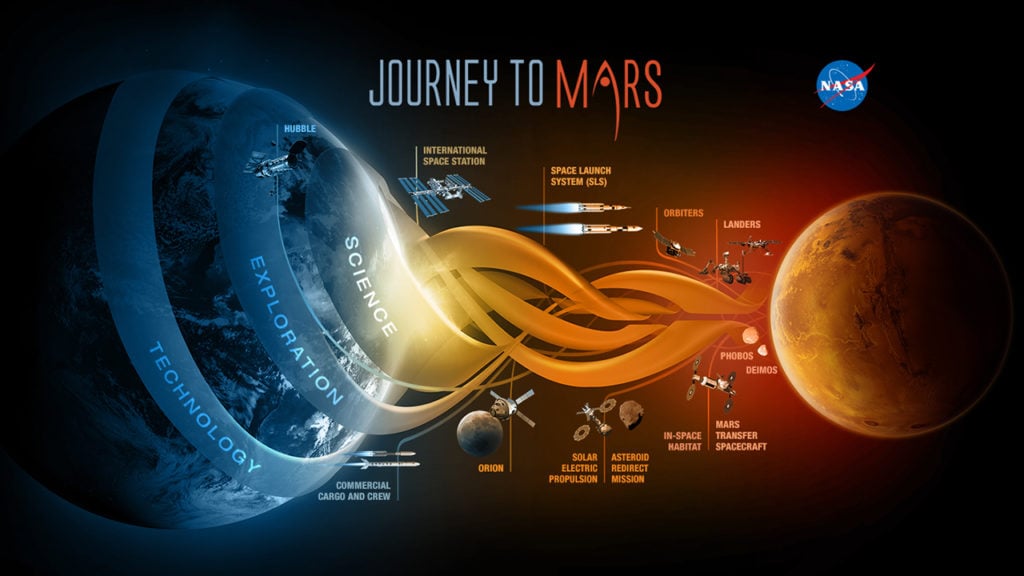With companies stepping up to compete in a Mars race, legislators must take a stand to remove bureaucracy and allow a healthy free market to flourish.
One of the biggest challenges to commercial space travel is economic viability, as the business model for commercial use of spacecraft remains a draft, according to Boeing Co. CEO Dennis Muilenburg.
Muilenburg said Tuesday that the aerospace company will go head-to-head with competitors in a new space race, toward commercializing travel to Mars.
“I’m convinced the first person to step foot on Mars will arrive there riding a Boeing rocket,” Muilenburg told the audience during a conference in the company’s headquarter city of Chicago. Boeing already has a relationship with the National Aeronautics and Space Administration (NASA) to create a launch system for exploring deep space.
Muilenburg’s announcement came about a week after a major announcement from billionaire entrepreneur Elon Musk that his company SpaceX is pursuing commercial travel to Mars.
Both Boeing and SpaceX were chosen by NASA to provide transportation for astronauts to the International Space Station (ISS) - the first commercial companies offered such contracts.
Musk, considered a visionary in the future of human transportation—from Tesla to Hyperloop to SpaceX—told a space conference last week, “The goal of SpaceX really is to build the transport system. It’s like building the Union Pacific railroad.” There he unveiled a plan to commercialize travel to Mars in a cruise ship-style craft designed to carry 100 passengers for a cool $100,000 per ticket.
Boeing, the veteran in this Mars race, also envisions commercial space exploration closer to earth in the form of building out hotels and companies to neighbor ISS, possibly in the next 20 years.
However, today’s complex legal framework does not allow commercial passenger flights in space. Most of these regulations were negotiated during the cold war and must be revisited by lawmakers. According to research conducted by Patrick Collins and Koichi Yonemoto, published in Space Future, “realising passenger space travel requires close coordination between legal, technical, business and other experts.”
From the report: “Space activities are treated quite differently from other international transport industries, such as shipping and air transport, which are government by a comprehensive framework of national and inter-national commercial law, supported where necessary by international treaties. By contrast, space law comprises intergovernmental treaties negotiated during the cold war. It is increasingly recognized that this existing legal/regulatory environment needs to be reformed.”
Former U.S. Congressman Robert Walker, who was appointed as chair of the Commission on the Future of the United States Aerospace Industry in 2001 and served on the President’s Commission on Implementation of the United States Space Exploration Policy in 2004, is quoted in Collins and Yonemoto’s research as saying, “Most of our laws and regulations governing space activity were written to make it easier for government to function in space. Now we need to make it easier for the private sector to undertake space development.”












